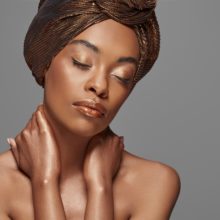3 Myths Of Acne [Part 2]
MYTH 2 – POOR HYGIENE CAUSES ACNE
Today I will be looking at another myth of Acne that you probably believe to be true. This is the second post on myths of acne. If you missed the first myth you can read the post here.
This is the myth that acne is caused by poor hygiene.
If dealing with acne wasn’t difficult enough, there’s a widespread belief that acne is actually caused by poor hygiene. They believe that you did not properly wash the place that is why the acne came in the first place.
To make matters worse, those suffering from acne then believe that they are responsible for the pimples as they did not wash the area frequently enough. This makes them make their acne worse simply by over washing or consistently scrubbing their skin with abrasive material or scrubs.
Acne is not caused by surface skin oils, dirt, or because you haven’t showered often enough. It can get worse but it is not the cause.
Acne is typically caused by a combination of factors, including:
- hormonal changes
- certain medications
- diet
- stress
- genetics
- excess oil production
- bacteria
- blockages in the pores
- inflammation
Vigorous washing will actually irritate your skin and leave you feeling worse than before, it will also cause scarring so please put the vigorous scrubs and scrub bush away when you have acne.
Does sleeping late cause acne?
Some studies conducted on acne have suggested that there may be a link between sleep deprivation and increased levels of certain hormones that can trigger acne breakouts. So you need to ensure you get enough rest every night.
Is cold water good for acne?
Cold water can help to constrict the pores and reduce inflammation, but it can’t do much for acne on its own.
What causes acne on the cheeks?
There are many possible causes of acne on the cheeks, including hormonal imbalances, stress, genetics, and certain medications. Other possible causes include frequently touching your face. when u do this you transfer bacteria from your hands to your face. Also, dirty pillowcases are another culprit.
Try to change your pillowcases frequently. It’s better you have pillowcases that don’t match than acne from waiting to find time to wash.
How much water to drink a day for acne?
Everyone’s skin reacts differently to different levels of hydration. However, you should aim to drink at least eight glasses of water a day to maintain clear skin. This amount of water should help reduce pimples, increase skin elasticity and improve dryness.
Why do pimples hurt when touched?
Pimples hurt when you touch them because they are inflamed. The inflammation is caused by the body’s immune system response to bacteria, sebum, and dead skin cells that get trapped in the hair follicle. The immune system releases chemicals that cause swelling, redness, and pain.
What happens if acne is left untreated?
Acne can lead to severe scarring of the skin if it is left untreated. With many scars on your face, you may feel less confident. It is best to start working on your acne as soon as possible.
Products to Consider
To be free from your acne and get rid of the scars that follow, we encourage you to check our recommended scar gel. Which comes as part of the 2 in 1 Acne scar package.
This gel contains natural ingredients and on top of being able to help with removing scars, it also has anti-inflammatory properties, helps to eliminate bacteria, and even nourishes your skin by giving it the moisture that it needs to bounce back to health.
It can even shorten the time your skin takes to heal.
It is also suitable for delicate skin unlike some of the other scar removal creams on the market, this one is suitable to be used on your face, particularly on acne scars and even pits caused by acne as well as for scarring from sun damage. You can also apply it to other areas where you need it. This means that this product has a variety of uses.
Click here to learn more about the package.
In our next post we will be looking at the final myth of Acne in this short series. More on acne later on.





